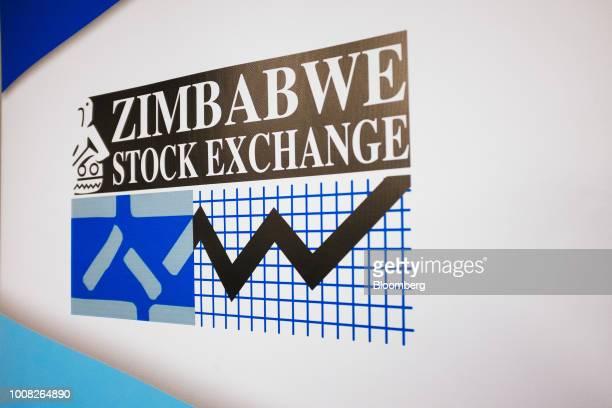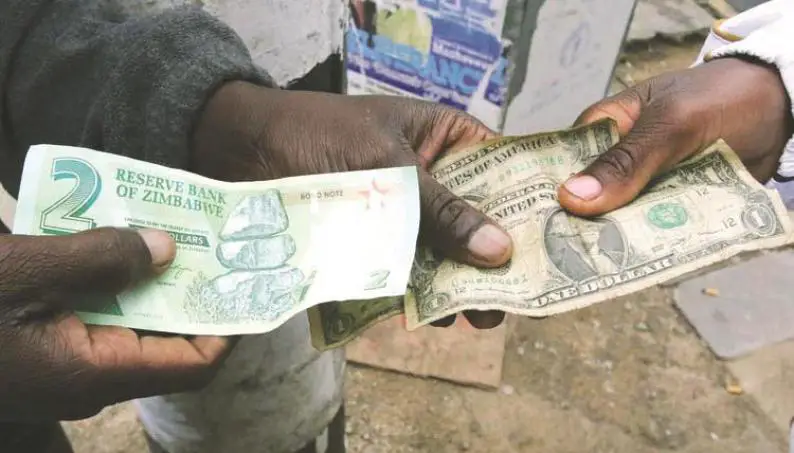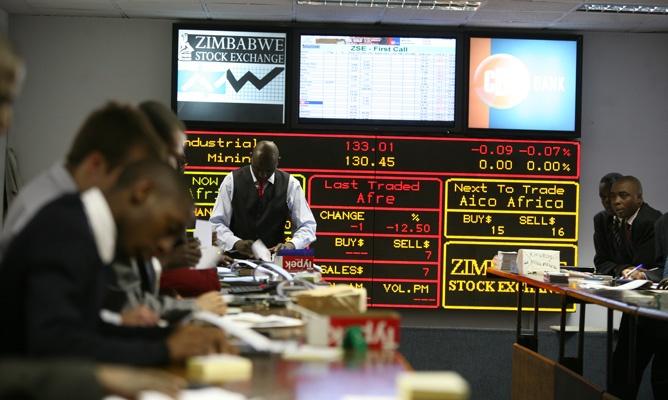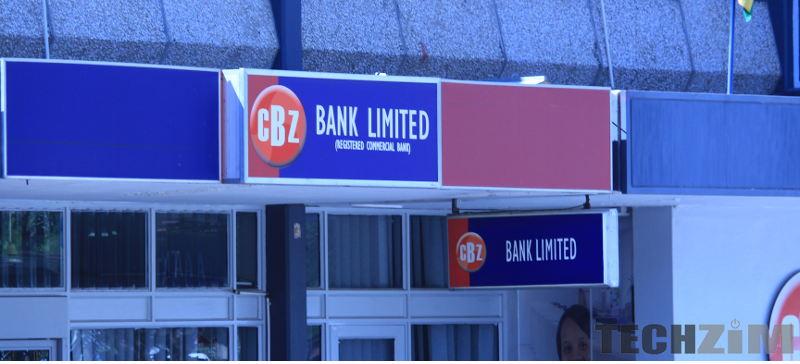- Africa’s new dawn: the rising role of digital and AI in agriculture
- Can Dangote Refinery Transform Africa Energy Ambition
- Gallup Survey: 80 per cent of Kenyan Workers Are Disengaged and Seek New Opportunities
- Madagascar Man Freed from 5KG Tumor After 15-Year Struggle
- How women in Africa are perceived and treated
- Sugar consumption in Kenya to Increase to 1.23 Million Tonnes
- Can Somalia and Turkey Oil deal Bring Change in Somaliland
- Remittances to Kenya dropped to $371.6 million in June, marking a six month low
Browsing: Zimbabwe stock exchange
- Zimbabwe Stock Exchange has been one of Africa’s best performing stock markets during the years 2019 to 2021
- Zimbabwe’s economy officially dollarized for the second time since 2009 when it first abandoned the use of the Zimbabwe dollar.
- The Zimbabwe Stock Exchange is home to some high quality companies that generate consistent quality returns.
- When dollarization first occurred in 2009 companies in Zimbabwe were left poorly capitalized and in need of fresh capital in hard currency.
- The need for fresh capital resulted in a flurry of rights issues from companies listed on the Zimbabwe Stock Exchange which for the most part were poorly subscribed leading to the dilution of existing shareholders who could not pursue their rights when dollarization initially occurred.
- This second phase of dollarization will be like the initial phase for investors who are not prepared for it but will also be a significant opportunity for those with
- Zimbabwe is anticipating the listing of some Real Estate Investment Trusts (REITs) this year.
- ZSE is expected to list the fifth ETF, Cass Saddle Agriculture ETF this week
- FINSEC introduced automated contract writing and derivatives trading, complete with direct integration of the trading, clearing, custody, and settlement facilities
- VFEX introduced broker-controlled accounts to ensure convenience in trading on the US dollar-denominated stocks trading platform
- VFEX is expected to launch its mobile securities trading platform, VFEX-Direct, at the end of this month in a move meant to simplify trading
This year is shaping up to be a defining year for Zimbabwe’s capital markets. Financial Securities Exchange (Private) Limited introduced derivatives and chatter over a new asset class has whet curious investors’ appetite.
Zimbabwe is anticipating the listing of some Real Estate Investment Trusts (REITs) sometime this year, and this could deepen the country’s capital markets.
The Zimbabwe Stock Exchange (ZSE) is …
- Stock broker Morgan and Co to launch Made in Zimbabwe ETF on June 17, 2022
- Made in Zimbabwe ETF to be listed by way of introduction
- The ETF will initially contain Zimbabwean Manufacturers as constituents
Award-winning stock broker Morgan and Co to launch Morgan and Co Made in Zimbabwe Exchange Traded Fund (ETF) on June 17, 2022, on the Zimbabwe Stock Exchange (ZSE). The ETF is going to be launched on the local bourse by way of introduction. According to a presentation by the broker, the fund is set to be largely constituted by manufacturing companies listed on the ZSE, with exposure to other non-manufacturing counters. In addition, the fund will be an actively managed fund with the objective of providing superior returns.
An exchange-traded fund (ETF) is a basket of securities that can be bought or sold on a stock exchange the same way a regular stock can. According …
Interestingly if the US$9 million which the company said it lost from the statutory surrender requirement is added back to the top-line revenue, it will take the company’s revenues for the 2021 financial year to just above US$ 24 million which would be higher than what it achieved in 2020. This policy position which the company lamented needs revision by the authorities as it is inflicting real financial harm to companies that are Zimbabwe’s biggest exporters and earners of foreign exchange.
In the 2021 financial year, Padenga Holdings Limited incurred higher interest expenses at US$ 10,138,637 which was up from US$ 6,665,084.00 the previous year. The increase in this cost category was due to leverage and borrowings which Padenga employed in rehabilitating the Eureka gold mine which is now in full production and is also responsible for the increase in group revenues.
The company enjoyed increased production from its gold …
- Zimplats is highly profitable. The Australian Stock Exchange (ASX) listed company boasts a market capitalization of US$ 2.26 billion
- This subsidiary of JSE listed Impala Platinum is now one of its central operations accounting for 22% of its market value.
- Zimplats due to its early entry into the Great Dyke in Zimbabwe has great potential for growth given global platinum prices and the support the company has received from the country’s government.
- While Zimplats is lucrative as an investments investors based in Zimbabwe have no means of gaining exposure to this asset in their portfolios unless they venture offshore. The company does not have a secondary listing on the Zimbabwe Stock Exchange.
Zimplats Holdings is an enigma to many Zimbabweans. They know for instance that the company is one of the largest foreign exchange earners for the southern African country, but few know that they can invest in it. Fewer …
- Before Mnangagwa’s statement, the Zimbabwean currency was officially valued at 165.94 to the US dollar, but it was trading on the black market at a rate ranging from 330 to 400 to the dollar
- Investigations found that many enterprises are simply borrowing significant sums of Zimbabwe dollars, which they then channel into the parallel market to acquire US dollars
- The president proposed issuing an order to compensate account holders who lost the value of their assets when the country de-dollarized in 2019
Zimbabwe ditched its depreciated currency in 2009, preferring to utilize foreign currencies, notably the US dollar. Mnangagwa’s administration revived the native currency in 2019 to float alongside international currencies in the economy, but the local currency continued to lose value.
As a result, President Emmerson Mnangagwa has instructed banks to cease extending loans to the government and private sector departments, claiming that the unprecedented action was intended to …
Jurisdictions and stock exchanges have their own rules for what circuit breakers entail when they kick in, and for how long they are in place. Circuit breakers are triggered based on slightly different parameters on various exchanges, with trading suspended anywhere between 5 minutes – as is the case on the Hong Kong exchange – or an entire day.
New York Stock Exchange President Stacey Cunningham told CNBC that circuit breakers are a precautionary measure that can slow down for a minute.
The circuit breakers “are designed to slow trading down for a few minutes, to give investors the ability to understand what’s happening in the market, consume the information and make decisions based on market conditions,” she said.
A circuit breaker functions in the trading world the same way it does for electrical circuits in a home. When things get overloaded, it kicks in and shuts down the circuit.…
President Mnangagwa said his Government is convinced that the recent exchange rate movements were driven by negative sentiments by economic agents as opposed to economic fundamentals.
“These negative sentiments have been propagating adverse expectations on future inflation and exchange rate movements, thus giving rise to artificially high demand for foreign currency as economic agents hedge against expected high inflation,” he added.
The Government listed measures that are expected to restore macroeconomic stability, support the current robust economic recovery trajectory, boost economic confidence, increase the appeal of the local currency, preserve value for depositors and investors and deal with market indiscipline.…
Successful turnaround strategies are not new to Zimbabwe’s largest universal banking concern.
CBZ has gone the distance from being characterized as a bank for crooks to the largest banking concern in the country. The majority of banks in the southern African country adopt the universal banking model instead of the niche or boutique bank model which was once ubiquitous globally.
The universal banking model’s roots can be traced to the promulgation of the Glass Steagall Act on the 1930s which combined the activities of commercial banks and investments banks. Banking houses that adopt this universal banking model aim to be a one-stop financial services shop offering everything from consumer and corporate credit to insurance and investment products.
The trend in Zimbabwe has grown in popularity as a method of meeting regulatory compliance and attaining critical mass. Other banks in Zimbabwe following the universal banking model in Zimbabwe include FBC Holdings …
The pre-listing statement specifies that the VFEX listing is a secondary one and will be done by way of the introduction of depository receipts representing the company’s shares that cannot be directly traded in Zimbabwe as its primary listing is on the respectively.
Investopedia defines a depositary receipt as “a negotiable certificate issued by a bank representing shares in a foreign company traded on a local stock exchange. The depositary receipt gives investors the opportunity to hold shares in the equity of foreign countries and gives them an alternative to trading on an international market.”
A depositary receipt allows investors to hold shares in stocks of companies listed on exchanges in foreign countries. It avoids the need to trade directly with the stock exchange in the foreign market. Instead, investors transact with a major financial institution within their home country, which typically reduces fees and is far more convenient than …














![Caledonia Mining to list on Victoria Falls Stock Exchange in December Caledonia Mining Plc is set to list on the Victoria Falls Stock Exchange. VFEX trades exclusively in US-denominated securities. [Photo/ Caledonia Mining Plc]](https://theexchange.africa/wp-content/uploads/2021/11/Caledonia_Caledonia.jpg)